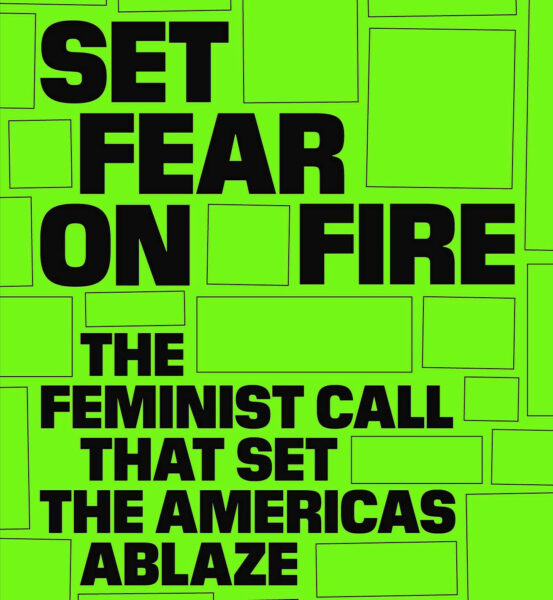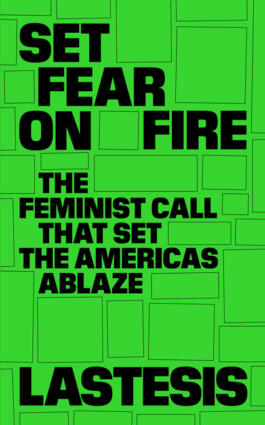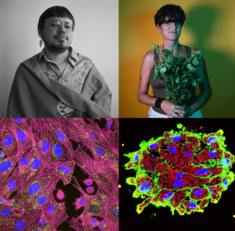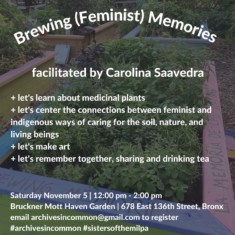About the event
Join us Monday, March 6th at the beginning of a week that will see feminist strikes erupting all across the globe, for the US book launch of Colectivo LASTESIS feminist manifesto, Set Fear on Fire (Verso), translated by Camila Valle.
After the feminist art collective LASTESIS created their performance “A Rapist in Your Path” in their native Chile, it went viral across the globe, becoming the anthem of the grassroots feminist movements in South America and around the world. Set Fear on Fire is their manifesto, an angry, unrepentant tour-de-force that moves through rage, femicide, abortion, homophobia, feminist art, and the oppression of the state to argue for a feminist world based on collective struggle and a visionary political art.
Colectivo LASTESIS will be in person at this public event to discuss their book and work, and will be joined by in discussion by professor Maria José Contreras (Columbia University), translator Camila Valle, and Faculty Leader of Archives in Common Ángeles Donoso Macaya (CUNY Graduate Center).
This event will be in Spanish with English interpretation provided.
Click here to Register and attend this in-person event at the CUNY Graduate Center.
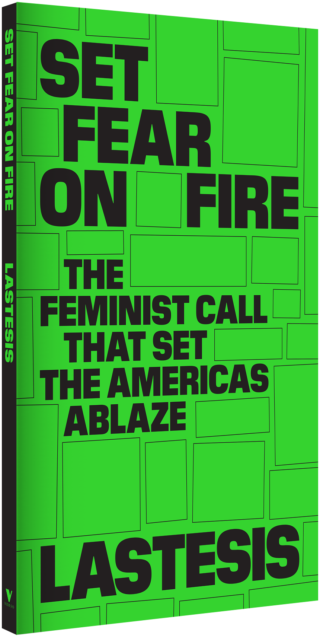
Participant's bios:
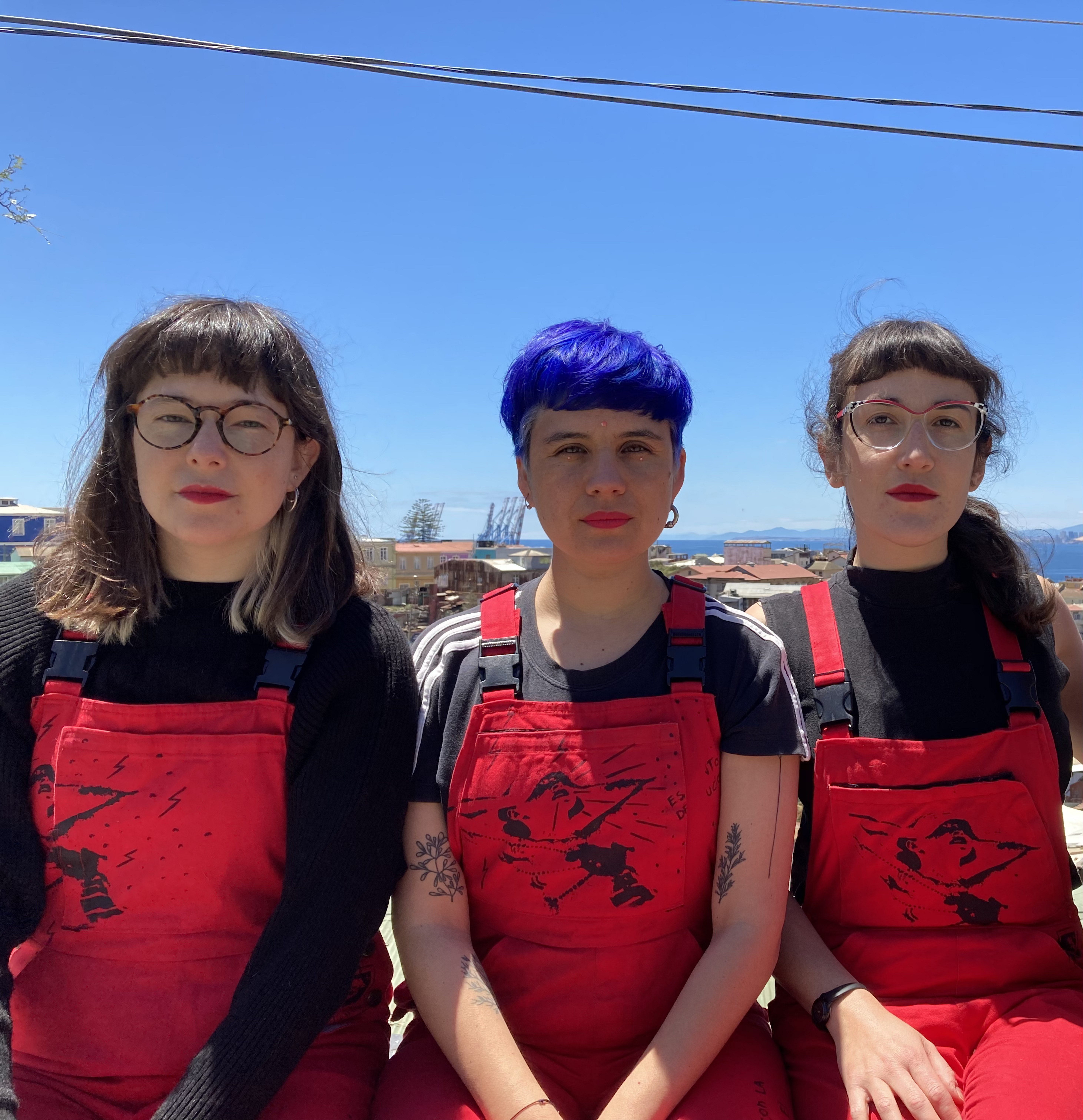
Colectivo LASTESIS is an artistic, interdisciplinary and feminist collective from Valparaíso, Chile, featuring Daffne Valdés Vargas, Paula Cometa Stange and Sibila Sotomayor Van Rysseghem. The collective is dedicated to spreading feminist theses and demands through performance and video performance, combining performing, sound, graphic and textile arts with history, philosophy and social sciences. Their performances include: Patriarchy and Capital is a Criminal Alliance (2018); the rapist is you (2020); RESISTANCE or the vindication of a collective right (2021), The city of the future alongside Delight Lab (2022), Songs for cooking (2023) and the street intervention a rapist in your path (2019), replicated in more than 50 countries. In addition to their stage work, they have published several books, including Polifonías Feministas (Random House, 2022), Antología Feminista (Debate, 2021); Quemar el miedo (Planeta, 2021) translated into German (S. Fisher, 2021), Italian (Capovolte, 2022) and English (Verso, 2023) and About wild Capitalism & its patriarchal Performance in our lives (at Why Theatre? Golden Book, NTGent, 2020), among others.
In addition, they have shared their artistic and activist work through a hundred instances of conversation and multiple collaborative workshops; they have participated in various festivals, museums, universities, fairs, conventions and feminist meetings in Chile, Argentina, Mexico, Bolivia, the United States, Sweden, Germany, Portugal, Switzerland, France, Spain, the Netherlands, Belgium and the United Kingdom in on-site instances, and virtually in around twenty other countries. They have also received multiple awards including the Jaime Castillo Velasco Award from the Chilean Human Rights Commission (2020), the Design of the Year Award in the digital category (2020), The Design Museum, UK, and recognition by TIME magazine in The 2020 TIME100, TIME's list of the world's most influential people.
Camila Valle is a translator, editor, writer, researcher, and cruciverbalist based in New York City. She is an activist and an abortion educator and acompañante.

María José Contreras is a Chilean multidisciplinary artist/scholar working in the international field of theater and performance. She is Associate Professor at Columbia University. Her creative practice and scholarship aim to transform civic and academic spaces and collective imaginaries. Her engagement with decolonizing theater-making, teaching, and research practice is recognized in The Twenty-First Century Performance Reader (London, Routledge, 2020), an international volume featuring the 73 leading global artists working with innovative approaches to performance. Contreras’ devised theater pieces, urban interventions, and performances have been presented in important venues and festivals in the US, Italy, Ukraine, Chile, Argentina, Canada, France and Brazil. In addition to numerous articles published in several languages, she recently co-edited two interdisciplinary volumes Cadáver exquisito: tres experiencias de investigación performativa en Chile (Oso Liebre, 2020) and Women Mobilizing Memory (Columbia University Press, 2019). She is currently working on her manuscript Rigorously undisciplined: decolonial approaches to performance research.

Ángeles Donoso Macaya is an immigrant educator, researcher and activist from Santiago, Chile, based in New York City. She is Professor of Spanish at the Borough of Manhattan Community College/CUNY and Professor of Latin American Cultures and Visual Studies in the Ph.D. Program in Latin American, Iberian, and Latino Cultures at The CUNY Graduate Center. Ángeles’ research centers on Latin American photography theory and history, counter-archival production, human rights activism, documentary film, and feminisms in the Southern Cone, and public humanities scholarship. She is the author of La insubordinación de la fotografía (Metales Pesados 2021) / The Insubordination of Photography: Documentary Practices under Chile’s Dictatorship (UP Florida 2020), which received the Best Book Award in Latin American Visual Culture at LASA 2021, Best Book Award in Recent History and Memory at LASA 2022 and a Socolow-Johnson Prize Honorable Mention at CLAH 2022. Her most recent articles have appeared in the Journal of Latin American Cultural Studies/Travesía, Oxford Research Encyclopedia of Latin American History, and in the collective volumes Cold War Camera (Duke UP 2023) and Photography and its Publics (Bloomsbury 2020), among others. Since 2020, Ángeles has been Faculty Lead of Archives in Common: Migrant Practices/ Knowledges/Memory, part of the Mellon Seminar on Public Engagement and Collaborative Research at The Center for the Humanities at The Graduate Center/CUNY.
This event is organized and co-sponsored by the Archives in Common: Migrant Practices/Knowledges/Memory project as part of the Seminar on Public Engagement and Collaborative Research from the Center for the Humanities at the Graduate Center CUNY, and by Verso Books, Espacio Sororo, and the Ph.D. Program in Latin American, Iberian, and Latino Cultures at the CUNY Graduate Center.
